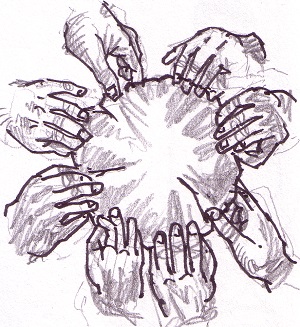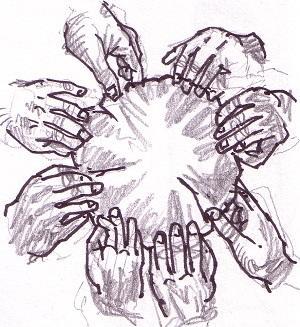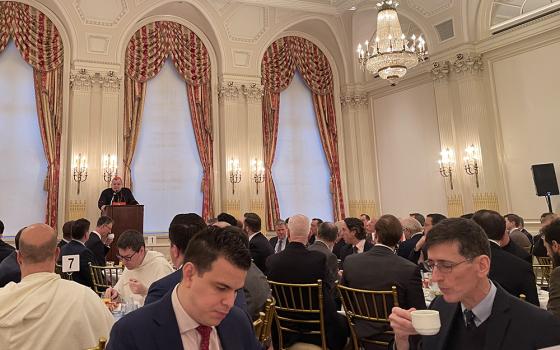

“There broke out a severe persecution of the church …” (Acts 8:1).
Acts 8:1b-8; John 6:35-40
The death of Stephen in Acts reveals that there was a division between the Palestinian Jewish Christians and the Hellenists, or Jewish Christians of the Diaspora living in Jerusalem. We recall that Stephen and other deacons were appointed by the Apostles because the Hellenist widows were being neglected in the distribution of bread. The scandal of this division was electrified by the stoning of Stephen and the subsequent persecution of the church that focused on the Hellenists but spared the Palestinian Jewish Christians led by the Twelve.
Acts’ attempt to present a harmonious Christian community from the start is marred by this truth, which showed how long it would take the early church to open itself to the larger expansion of the mother church not just to Greek Jewish converts but also to Gentiles. It is ironic that Saul, who was violently pursuing the Hellenist Jewish Christians, would become the most important evangelist to the Gentile world as St. Paul. Any attempt to idealize the primitive church as being one in mind and heart is exploded by the infighting and competition of the two groups from the outset. Our ideologically divided church today is nothing new and confirms that during its long history, the Catholic church has always been a serious work in progress.
The historical tension between the ideal and the reality frees us from nostalgia and challenges us to address today’s divisions as part of the witness of the church to continue despite its many problems. The Eucharist has not been called a feast of enemies without reason, because the Table of the Lord is often more like a family feud than a harmonious agape, yet it is the one place where reconciliation and forgiveness are the real work of the people, the essence of liturgy. The dynamic struggles between traditionalists and progressives, liberals and conservatives, are the church’s witness that the love of the crucified and risen Jesus still has the power to hold the family together despite our ideological differences.
Jesus testifies in John’s Gospel that he will not lose anything or anyone the Father gave him. Our celebration of the “breaking of the bread” commemorates both the death of the Lord and the promise of unity in love his sacrifice makes possible in our fractured world. Jesus died not to save the saved but to heal a broken humanity, to overcome the hostility between those who are near and those who are far. The Father who loves the Prodigal Son also loves the angry older brother and will not cease trying to bring them together to the table that celebrates the victory of life over death, love over division. The sign to the world is that unity is possible, even if the real church has always struggled to practice what it preaches before it could preach it to the world.
Advertisement








